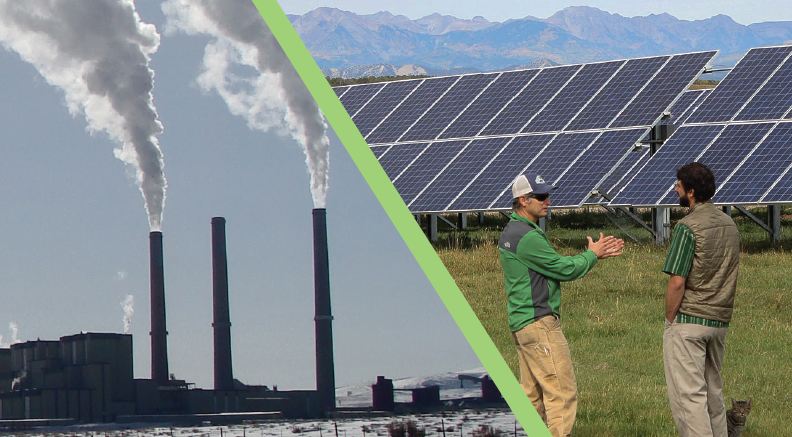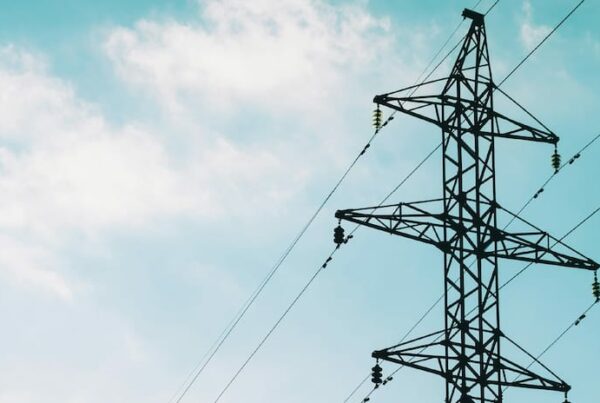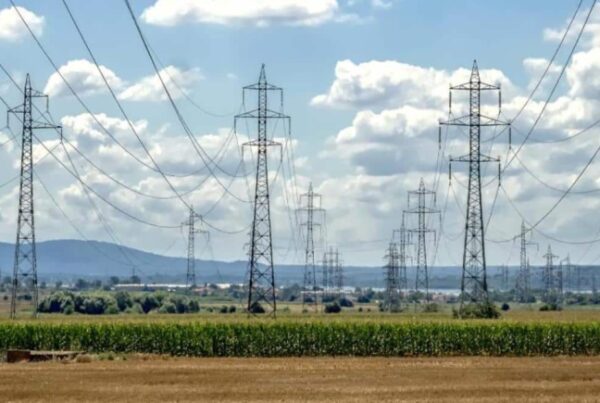Spring is in the air, and with it comes potentially big changes for our electric power supply.
Leadership changes abound at both our local rural electric cooperative, La Plata Electric Association, and its wholesale electric supplier, Tri-State Generating and Transmission. Both LPEA and Tri-State are choosing new CEOs. Tri-State has already announced the hiring of its new leader, and LPEA is narrowing in on finalists to replace its retiring CEO.
At the same time, LPEA member-owners of the cooperative once again have the opportunity and responsibility to vote for board members in the co-op’s annual election. The big question facing LPEA members is whether to continue the board’s momentum investigating options for where and how we purchase electricity. Over the past year, the LPEA board has undertaken a couple of studies by outside experts.
One study will provide an overview of the rapidly evolving wholesale power market – how the growing mix of wind and solar can work together with existing electric generators in keeping supplies reliable and affordable.
The other study will offer an assessment of the value of LPEA’s existing 32-year contract with Tri-State, whereby we are bound to purchase 95 percent of our electricity from Tri-State. The valuation will give everyone an idea of what it might take to purchase an early termination of that contract, and whether that’s a financially viable or attractive proposition.
Many LPEA members want more local control over our electric supply, more than granted by the minuscule 5 percent we are currently allowed to locally generate. For some, it’s a concern about the climate change impacts from Tri-State’s traditional reliance on procuring 60 percent of its electricity from coal, in large part because of Tri-State’s large ownership investments in coal mines and coal power plants.
For others, LPEA’s inability to buy power locally chafes. LPEA purchases roughly $70 million in electricity each year from Tri-State, millions that flow out of the pockets of Southwest Colorado residents and businesses into Tri-State’s coffers in metro Denver. Imagine if some of those millions could be used to buy electricity generated locally here in Southwest Colorado, perhaps from local solar projects or other renewable energy sources.
It’s one of the crux decisions about the future course of LPEA’s electricity supply. Do we want to be captains of our own ship and chart a course toward locally-owned, renewable energy? Or are we satisfied having our power supply investment decisions made by a distant corporation not even headquartered within a rural electric cooperative service area, but in the Denver suburbs?
Some of our neighboring electric cooperatives have chosen to explore life on their own. Most recently, Delta-Montrose Electric Association filed a complaint with the Colorado Public Utilities Commission asking it to intercede in helping fix a fair fee to exit its contract with Tri-State. Delta-Montrose wants the option to invest in homegrown, local electricity both for economic development but also to limit future rate increases it expects from Tri-State.
Delta-Montrose says Tri-State touts the “open and voluntary” nature of its cooperative membership and just wants to be allowed to voluntarily leave. Tri-State has responded by suing Delta-Montrose in a Denver-area courtroom to prevent its departure.
The path chosen by Delta-Montrose may or may not be the right course for LPEA, but without the independent fact-finding the LPEA board is currently pursuing, we might never know. It’s one of the central decisions facing this year’s crop of LPEA board candidates – do we take as gospel whatever Tri-State promotes, or do we perform due diligence to ascertain our own best course?
This content first published in The Durango Herald’s Thinking Green Column here.





There is to be no more fossil fuel Industries and oil drilling allowed because those are dangerous and we must shut them all down and replace everything with clean renewable energy and solar power and wind, so never allow this dirty pollution to occur again.
Nikola Tesla urged the J. D. Rockefeller and Henry Ford to abandon the use and sale of Fossil Fuel due to its being: A finite resource, carcinogenic, a danger to Man, Beast, Water, and Air, AND a danger to use/manufacture.
Tesla explained to the two Titans of Industry, Hydrogen is the perfect fuel. Hydrogen is the most abundant element in the Universe, able to safely fuel both Industry and Transportation, 100% recyclable, and practically free once your production facility is built.
The Titans chose profit, regardless of known consequences They have been and still are hiding the fact that Hydrogen was and is the fuel is the missing puzzle piece renewable limitless energy.
Hydrogen can be used in Internal Combustion Engines instead of gasoline, Steam Engines (Its exhaust is steam), Fuel Cells to create On-Demand Electricity. (No new inventions required)
Fun Fact: If you burn Hydrogen to make high pressure steam and release the hydrogen’s exhaust into the Atmosphere, the exhaust will clean pollution (like Carbon) out of our Atmosphere.